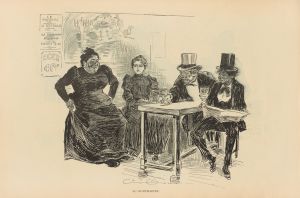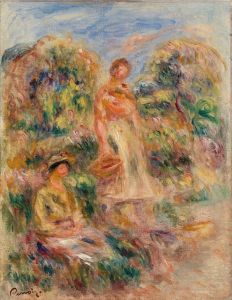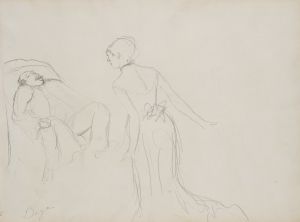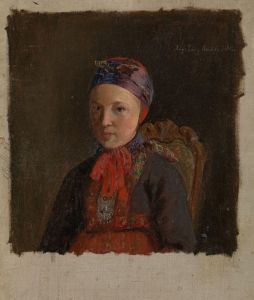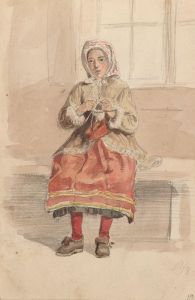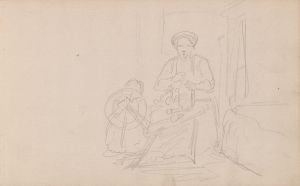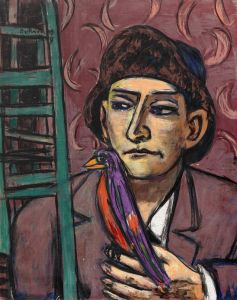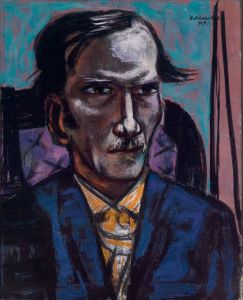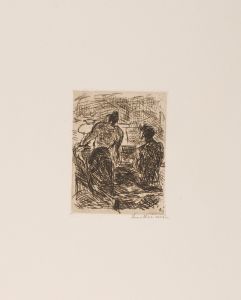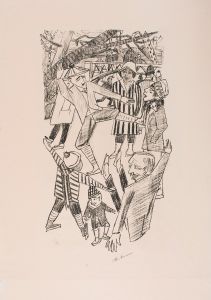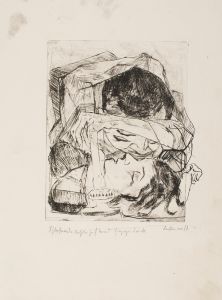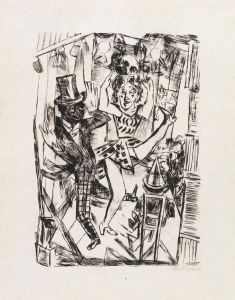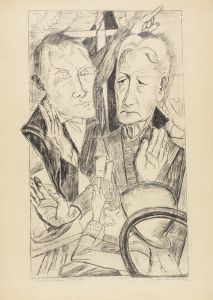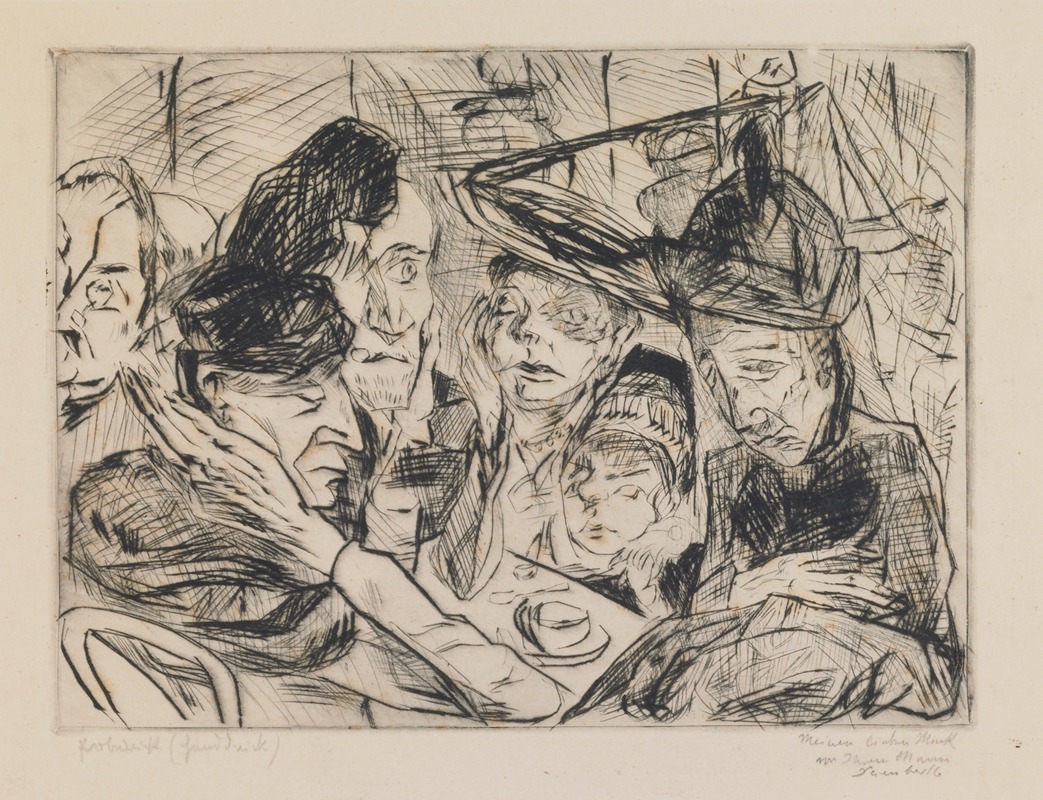
Café
A hand-painted replica of Max Beckmann’s masterpiece Café, meticulously crafted by professional artists to capture the true essence of the original. Each piece is created with museum-quality canvas and rare mineral pigments, carefully painted by experienced artists with delicate brushstrokes and rich, layered colors to perfectly recreate the texture of the original artwork. Unlike machine-printed reproductions, this hand-painted version brings the painting to life, infused with the artist’s emotions and skill in every stroke. Whether for personal collection or home decoration, it instantly elevates the artistic atmosphere of any space.
Max Beckmann's "Café" is a notable work by the German painter, who is recognized for his contributions to the Expressionist movement. Beckmann, born in 1884 in Leipzig, Germany, is renowned for his vivid and often complex compositions that reflect the tumultuous socio-political landscape of his time. His works frequently explore themes of human experience, existential angst, and the chaos of modern life.
"Café," painted in 1942, is a compelling example of Beckmann's mature style, characterized by bold colors, dynamic forms, and a sense of psychological depth. During this period, Beckmann was living in Amsterdam, having fled Germany in 1937 due to the oppressive Nazi regime, which had labeled his work as "degenerate art." This exile profoundly influenced his art, infusing it with a sense of displacement and introspection.
The painting depicts an interior scene of a café, a common social setting that Beckmann often used to explore the interactions and isolation of individuals within urban environments. The composition is marked by its use of strong lines and contrasting colors, creating a sense of tension and movement. Beckmann's figures are typically robust and somewhat distorted, a stylistic choice that emphasizes their emotional states and the underlying drama of the scene.
In "Café," the figures are engaged in various activities, yet there is a palpable sense of detachment and introspection. This reflects Beckmann's interest in the complexities of human relationships and the often-unseen psychological undercurrents present in everyday life. The café setting serves as a microcosm of society, where diverse individuals converge, each carrying their own stories and struggles.
Beckmann's use of space in "Café" is particularly noteworthy. He often employed a compressed and tilted perspective, which adds to the intensity and immediacy of the scene. This technique draws viewers into the painting, inviting them to explore the intricate interactions and emotions of the characters depicted. The artist's mastery of composition and form is evident in the way he balances these elements to create a cohesive and impactful work.
The painting also reflects Beckmann's broader artistic concerns during this period. Having experienced the upheavals of World War I and the rise of fascism in Europe, Beckmann's art often grapples with themes of power, identity, and the human condition. "Café" can be seen as a reflection of these themes, capturing the uncertainty and existential questioning that defined much of his work.
Max Beckmann continued to paint and exhibit his work until his death in 1950. His legacy as a pivotal figure in 20th-century art endures, with his paintings held in major collections worldwide. "Café" remains an important piece within his oeuvre, exemplifying his distinctive approach to capturing the complexities of modern life through art.





